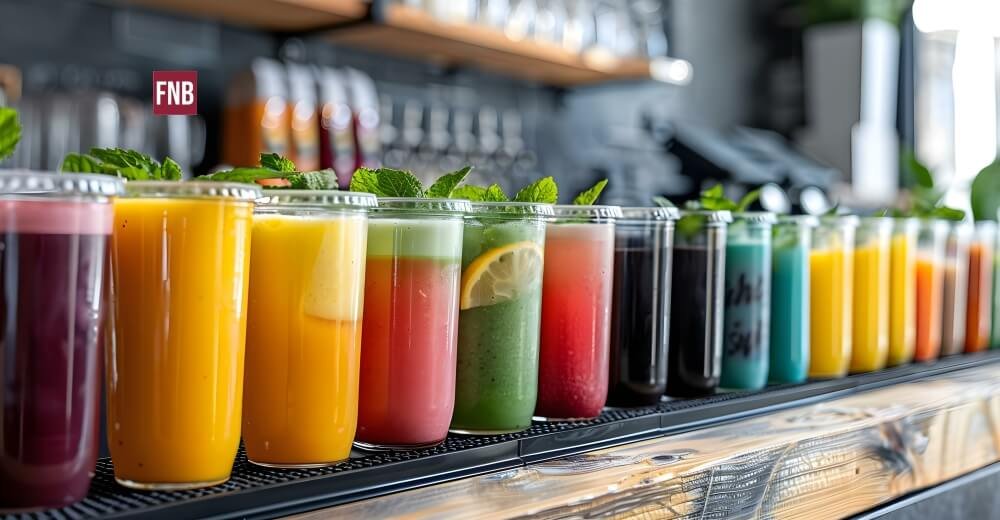Green Drinks, Global Impact
Plant-based beverage momentum has grown exponentially in the past few years, changing the nature of consumer preferences and diet around the world. These developments have resulted from the conjunction of health awareness, environmental issues, and lifestyle shifts and represent an emerging market for the food industry, which now focuses on developing alternatives to dairy-based products.
The article considers these drivers of the movement, the products that exist within this segment, and what this change will mean for consumers and the food industry.
Market Growth Trends
The plant-based beverage market is viewed to grow substantially, since it has been projected to rise from $24.31 billion in 2023 to $27.09 billion in 2024, hence experiencing a compound annual growth rate of 11.4%. This market is expected to increase approximately up to $56.73 billion by 2034 due to high consumption of plant-based diets compared to dairy products.
This growth is further buttressed by soaring health concerns related to lactose intolerance and cholesterol management, whereby consumers find a need to seek alternative non-dairy solutions.
Some significant trends continue to shape the landscape of plant-based beverages:
- Diverse Portfolios: Today consumers can find a wide array of nut, grain, legume, and seed-based beverages from almonds, soy, oats, rice and coconut milk to everyone’s differentiated tastes and dietary preference.
- Health and Nutrition Focus: The awareness concerning the nutritional benefits of plant-based beverages has definitely improved much more among consumers. Some of the options produced imitate most of the nutrient components of the dairy milk, but contain less fat and cholesterol.
- Sustainability Issues: The social factors are by far the strongest factor that influences the consumer’s decisions. The majority of plant-based beverages hold a better impact than the dairy products, and this reason has made people cross over to the plant base products to prevent the worst happening.
Consumer Motivations
Consumers are using plant-based beverages for health, ethical, and environmental-associated reasons. Majority of the consumers consume these beverages with the belief it boosts their medical standards. The beverage therefore has less calories, and less fat than conventional fermented milk products beer this implication. By and large, this drink becomes an option for a large contingency experiencing either lactose intolerance or dairy allergy. One of the findings made known in a consumer research report revealed that a high percentage of consumers made health as the reason for consuming this product.
Realizing the various problems that beset dairy farming animals people are now seeking plant base products. Issues to do with ethics and sustainability are gaining focus with consumers due to the need to associate with products that reflect their BUYING personas. In today’s world, the ecological impact that people care about includes the impact of food production. Using plant-based products like juices, require fewer inputs like water, and land than what is used in dairy farming, and also the rates of greenhouse gas emissions are lower. This awareness qualifies the consumers to a more sustainable route.
Innovations in Plant-Based Beverages
The plant-based beverage industry is characterized by continuous innovation towards flavor, texture, and nutritional value. Manufacturers invest in research and development for the improvement of product offerings. Many brands are fortifying their products with added nutrients like calcium and vitamin D to be able to compete with dairy milk. Functional beverages with probiotics or added protein are also growing popular among health-conscious consumers.
Manufacturers will have the opportunity to address unique preferences with the creation of particular flavors and blends. Breakthroughs in processing technology ensure the taste and feel developed during processing are as well tolerated by a greater sector of the population. In another innovation, eco-friendly packaging will catch the attention of more firms that believe consumers, being conscious of environmentalism, will rank this amongst other priorities.
Implications for the Food Industry
This change holds major implications for the food industry. Traditional dairy producers respond to this shift by creating their own lines of plant-based alternatives or reformulating their products to meet the changing tastes of consumers. Retailers have responded to the trend as well; plant-based products are now found on mainstream grocery store shelves among other conventional items.
Further, food service, like cafes and restaurants, is incorporating plant-based drinks into their menus as well to reflect a broader trend in the inclusion of options within a dining choice. Establishments are now becoming more attuned to the need for vegan and flexitarian offerings.
Conclusion
This movement of plant-based beverages signifies a huge change in consumers’ preferences concerning health awareness, ethics, and sustainability. It has changed not only individual eating habits but the landscape of the food industry because, for the last few years, it has been doing exceptionally well in the market, and this trend is most likely to continue for years ahead. As innovation unfolds within this field, consumers would look forward to an expansion of delectable as well as healthier choices that coincide with their sense of worth and personal habits.






